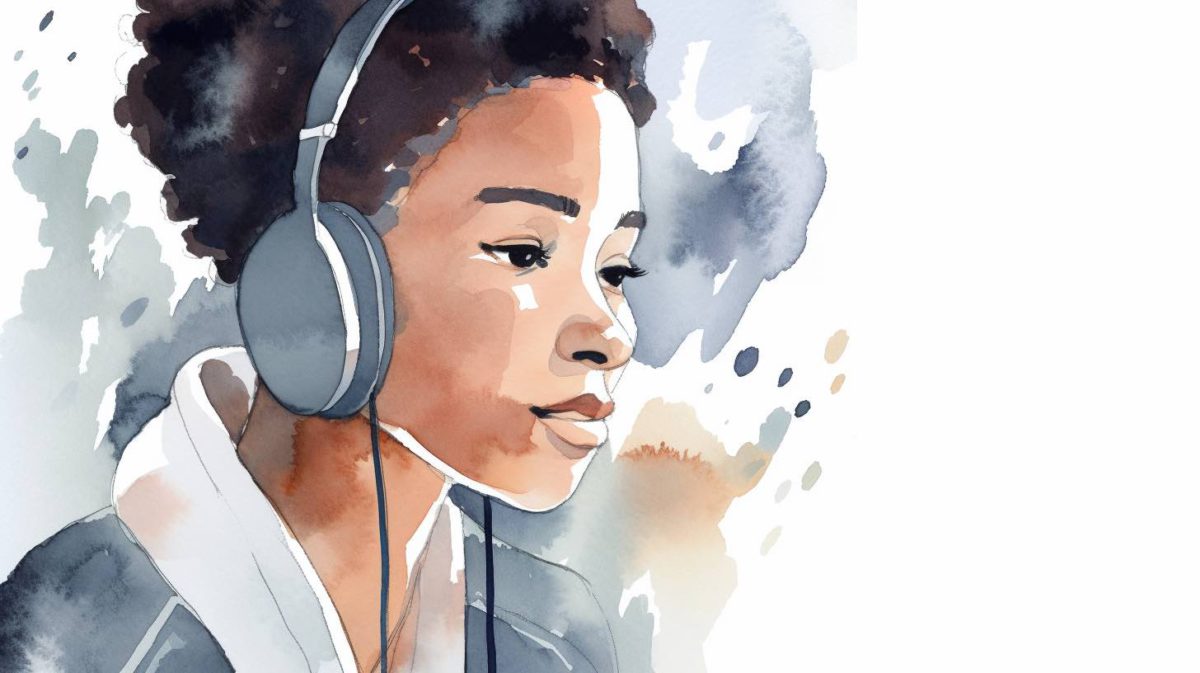I wanted to chat a bit about something I often see in my practice, something called Relationship Obsessive-Compulsive Disorder, or ROCD for short. It’s quite a fascinating, yet challenging, aspect of relationships that not many people are aware of.
So, imagine this: You’re in a relationship, but your mind is constantly flooded with doubts and worries. Questions like “Do I really love my partner?” or “Are we meant to be together?” keep popping up, no matter how happy you are otherwise. That’s the crux of ROCD. It’s like having a pesky little voice in your head that’s always questioning your feelings and your relationship, even when there’s no real reason to doubt.
Now, here’s where it gets tricky. Sometimes, these doubts might make you think, “Maybe I’m not actually in love,” which can be pretty confusing and distressing. This is what many of my clients struggle with: figuring out if these thoughts are just ROCD messing with them, or if they’re genuine concerns about their relationship.
The cool thing about Cognitive Behavioral Therapy, or CBT, is that it helps to sort out these thoughts. It’s like being a detective of your own mind. We look at these intrusive thoughts and try to understand where they’re coming from. Are they just irrational worries, or is there something in the relationship that genuinely doesn’t feel right? CBT is all about challenging these thoughts and seeing them for what they really are.
But here’s the most important part: it’s okay to have doubts and worries in a relationship. They don’t automatically mean something’s wrong. It’s about understanding where these thoughts are coming from and dealing with them in a healthy way. And that’s what I’m here for – to help navigate these confusing waters and find some clarity.
So, if you ever find yourself or someone you know tangled up in these kinds of thoughts, just remember, it’s a common challenge, and there’s always a way to work through it. Sometimes, all it takes is a little bit of guidance and self-understanding.
Take care!
Prof. Guy Doron
ROCD is characterized by obsessive thoughts and doubts about one’s romantic relationship. These doubts can stem from various aspects, such as the partner’s feelings, compatibility, or attraction. People with ROCD often engage in compulsive behaviors (e.g., seeking reassurance, checking feelings) to alleviate their anxiety.
When I met Alex, we hit it off right away. Our conversations flowed effortlessly, and we shared many interests and values. Despite the great connection we had, I couldn’t help but be plagued by doubts about our relationship from the very beginning. I was aware of Relationship Obsessive-Compulsive Disorder (ROCD) and its symptoms, which made me question whether my doubts were genuine or simply a manifestation of ROCD.
These doubts created a constant state of inner turmoil. On one hand, I felt a deep connection with Alex, and on the other, I was unsure if we were truly meant to be together. The more I tried to understand my feelings, the more confused I became. I would ask myself questions like, “Is this love, or am I just convincing myself that it is?” and “Are we truly compatible, or are my concerns a result of ROCD?”
I found myself overanalyzing every aspect of our relationship, searching for signs that would either validate or invalidate my doubts. My mind would race with thoughts of our future, questioning if we could overcome obstacles and build a life together. This constant uncertainty made it difficult for me to fully enjoy the present moments with Alex and left me feeling emotionally drained.
I felt trapped in a cycle of doubt and confusion, unsure if my concerns about our relationship were valid or if they were simply a product of ROCD. This internal struggle led to a sense of isolation, as I didn’t know how to communicate these feelings to Alex or anyone else. I felt stuck in a conundrum, unable to differentiate between genuine concerns and the potential influence of ROCD.
Tudor D.
Is it OCD or am I not in love?
One of the most perplexing challenges for individuals experiencing Relationship Obsessive-Compulsive Disorder (ROCD) is discerning whether their doubts and anxieties are symptomatic of the disorder or indicators of genuine relationship incompatibility. This section delves into how Cognitive Behavioral Therapy (CBT) can assist in navigating this complex terrain.
Understanding the Intricacies of ROCD
ROCD is characterized by persistent, unwanted thoughts and excessive worries about one’s romantic relationship. Common obsessions include questioning one’s love for their partner, their partner’s love for them, or the ‘rightness’ of the relationship. These obsessions often lead to compulsive behaviors, like constantly seeking reassurance, which are attempts to alleviate the distress caused by these doubts.
CBT Approach to Differentiation
CBT, a psychotherapeutic treatment, is grounded in the concept that our thoughts, feelings, and behaviors are interconnected. In the context of ROCD, CBT focuses on dissecting these obsessive thoughts and understanding how they influence emotions and actions.
- Identifying Cognitive Distortions: CBT helps individuals recognize patterns of irrational and unproductive thinking. For instance, ‘all-or-nothing’ thinking might lead someone to believe that any doubt means the relationship is flawed. Recognizing these distortions is the first step in challenging and modifying them.
- Separating Obsessions from Core Beliefs: Through CBT, individuals learn to differentiate between obsessive thoughts fueled by anxiety and their genuine beliefs and values about their relationship. This distinction is crucial in understanding whether feelings stem from ROCD or from legitimate relationship concerns.
The Role of Self-Reflection and Professional Guidance
While CBT provides tools for self-examination, discerning the root of relationship doubts can still be challenging. Here, the guidance of a trained therapist becomes invaluable. A therapist can help navigate these doubts, offering an objective perspective and helping to distinguish between ROCD-driven anxieties and genuine relationship issues.
Beyond Individual Therapy: Considering the Relationship Context
It’s important to note that ROCD not only affects the individual but also the dynamics of the relationship. Open communication with one’s partner about these struggles is vital. In some cases, couples therapy might be recommended to address relationship dynamics that may be contributing to or affected by ROCD symptoms.

The ROCD challenge
Distinguishing between ROCD and genuine relationship concerns can be challenging for several reasons:
- Overlapping symptoms: Both ROCD and genuine relationship concerns can involve doubts, insecurities, and anxiety about the relationship. This overlap in symptoms can make it difficult to determine the root cause of these feelings.
- Emotional intensity: Relationships often evoke strong emotions, making it hard to objectively assess the situation. The emotional intensity associated with both ROCD and genuine concerns can blur the lines between the two, leading to confusion.
- Normalcy of doubts: It is natural for people to experience doubts and concerns in any relationship. Since some level of uncertainty is expected, it can be challenging to differentiate between normal doubts and those stemming from ROCD.
- Internal struggle: People with ROCD may be hesitant to accept that their doubts are a result of a mental health condition rather than genuine concerns. This internal struggle can further complicate the process of distinguishing between the two.
- Confirmation bias: Individuals with ROCD may be more likely to notice and focus on the aspects of their relationship that confirm their doubts, leading them to believe that their concerns are valid. This confirmation bias can make it difficult to recognize when the thoughts and feelings are actually symptoms of ROCD.
- Lack of awareness: Many people are not familiar with ROCD, so they may not consider it as a possible explanation for their doubts and concerns. Without knowledge of the condition, it becomes even more challenging to identify the true source of these feelings.

It is so, so hard to tell right?
You know, it’s really important to highlight just how tricky it can be to tell the difference between ROCD and genuine relationship concerns. In life, we’re often told that if we have doubts, it means something is wrong. It’s like we’re conditioned to see doubt as a big red flag. But here’s the twist – with OCD, and especially ROCD, it’s a whole different ball game.
People with ROCD, or any form of OCD really, have this tendency to give way too much importance to doubts. It’s like their brain is a doubt-magnifying machine. So, a small, normal doubt that most people would shrug off can feel like a huge, glaring problem to someone with ROCD. It’s as if their brain is constantly on high alert, looking for any sign of trouble, even when everything is actually okay.
The thing is, doubt is a normal part of life, and it’s definitely a normal part of relationships. No relationship is perfect, and it’s natural to question things from time to time. But for someone with ROCD, these doubts can become overwhelming and consuming. They can start to dominate their thoughts and make them question everything about their relationship, even when there’s no real reason to.
That’s why in therapy, especially with CBT, we work on understanding these doubts. We try to figure out if they’re just the OCD talking or if they’re based on real issues that need addressing. The goal is to help people learn to manage these doubts, to see them for what they are, and not let them take over their lives or their relationships.
So, if you’re ever feeling swamped by doubts and can’t seem to shake them off, remember, it’s not always as black and white as it seems. Doubts don’t always mean there’s a problem, especially when OCD is in the mix. It’s all about finding that balance and understanding what these doubts really mean for you.
Here are some signs that may indicate ROCD
- Obsessive thoughts: If you find yourself constantly ruminating about your relationship, even when you’re not with your partner, it could be a sign of ROCD.
- Compulsive behaviors: Engaging in repetitive behaviors (e.g., seeking reassurance from others, checking feelings) to reduce anxiety might suggest ROCD.
- Interference with daily life: If your doubts are affecting your ability to function in daily life (e.g., work, social interactions), it could be a symptom of ROCD.
- Excessive focus on “flaws”: People with ROCD may magnify their partner’s imperfections, obsessing over them and questioning the relationship’s viability.
- Past patterns: If you’ve experienced similar doubts and obsessions in previous relationships, it could indicate a pattern of ROCD.
In contrast, typical relationship concerns usually arise from specific issues or situations and don’t involve the same level of obsessive thoughts or compulsive behaviors.
Ultimately, it’s crucial to consult a mental health professional, such as a therapist or psychologist, to help you determine whether your doubts are due to ROCD or genuine concerns. They can provide guidance, support, and potential treatment options for your specific situation.
The old way | ocd.app | |
Cost | $$$ – Therapist costs | $ – Save money |
Evidence | No published evidence | 13 published studies |
Time burden | Long term | 3-4 minutes of your day |
Results | Takes months | 91% see first results within a week |
Privacy | Privacy concerns | Anonymous and private |
User feedback | Mixed | 4.8 / 5.0 (2,635 reviews) |











